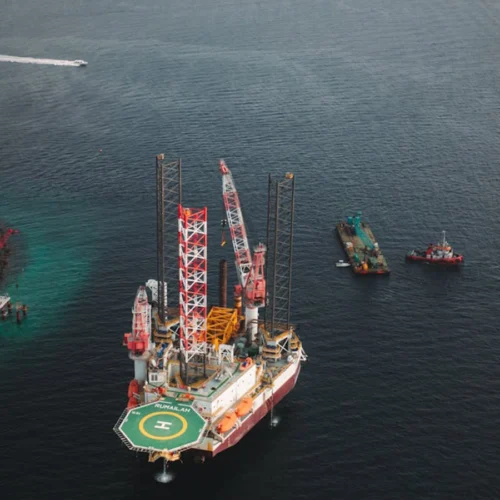How to Find the Best Vessel to Purchase: A Strategic Guide for Maritime Professionals

In the dynamic world of maritime commerce, acquiring the right vessel is a decision that requires a blend of strategic insight and meticulous evaluation. Whether expanding a fleet or venturing into vessel ownership, the process of purchasing a vessel involves several critical factors that can significantly impact your operational efficiency and return on investment.
This guide aims to provide innovative and practical strategies for finding and evaluating vessels for purchase, ensuring you make informed and profitable decisions.
Comprehensive Market Research
The foundation of a successful vessel acquisition begins with thorough market research. Understanding market trends and vessel availability is crucial in making an informed purchase.
Market Research Strategies:
- Industry Analysis: Stay abreast of the latest trends in the shipping industry. Analyze reports and forecasts to understand the demand and supply dynamics, pricing trends, and emerging markets.
- Broker Consultation: Engage with reputable ship brokers who have in-depth knowledge of the market. They can provide valuable insights into available vessels and negotiate favorable terms on your behalf.
- Auction Listings: Monitor vessel auctions for potential opportunities. Auctions can offer competitive prices, but require quick decision-making and due diligence.
Evaluating Vessel Types
Different types of vessels serve different purposes, and selecting the right type is paramount to meeting your specific operational needs.
Vessel Type Considerations:
- Cargo Vessels: For transporting goods, consider the types of cargo you intend to carry—bulk carriers, container ships, and tankers each have specific designs suited to different cargo types.
- Passenger Vessels: If your focus is on passenger transport, evaluate the capacity, amenities, and regulatory compliance of cruise ships, ferries, or yachts.
- Specialized Vessels: For specialized operations, such as offshore drilling or research, ensure the vessel is equipped with the necessary technology and equipment to meet your operational requirements.
Technical and Operational Assessment
A detailed technical and operational assessment of the vessel is critical to ensure it meets your performance standards and regulatory requirements.
Key Assessment Areas:
- Structural Integrity: Inspect the hull, deck, and superstructure for signs of wear and damage. Ensure the vessel’s structural integrity aligns with its intended use and lifespan.
- Machinery and Equipment: Evaluate the condition and performance of the main engine, auxiliary engines, and other critical machinery. Efficient and well-maintained equipment is essential for reliable operations.
- Regulatory Compliance: Verify that the vessel complies with international and regional maritime regulations, including safety, environmental, and operational standards. This includes certificates of classification and statutory compliance.
Financial and Operational Efficiency
Understanding the financial implications and operational efficiency of the vessel is crucial for a sound investment.
Financial Considerations:
- Total Cost of Ownership: Calculate the total cost of ownership, including the purchase price, maintenance, operating costs, and potential upgrades or retrofits.
- Financing Options: Explore various financing options such as loans, leases, and equity financing. Assess the impact of financing terms on your cash flow and return on investment.
- Resale Value: Consider the vessel’s resale value and marketability. A vessel with a high resale value can provide a better return on investment in the long run.
Operational Efficiency:
- Fuel Efficiency: Assess the vessel’s fuel consumption and efficiency. Fuel-efficient vessels can significantly reduce operating costs and environmental impact.
- Crew Requirements: Determine the crew size and qualifications required to operate the vessel. Efficient crew management can optimize operational costs.
- Technological Advancements: Evaluate the integration of advanced technologies, such as automation and digitalization, which can enhance operational efficiency and reduce downtime.
Legal and Contractual Due Diligence
Ensuring a thorough legal and contractual review is essential to mitigate risks and protect your investment.
Due Diligence Steps:
- Title Verification: Verify the vessel’s title and ownership history to ensure there are
no liens, encumbrances, or legal disputes. - Contract Review: Carefully review the purchase agreement and ensure all terms and conditions are clearly defined. Engage maritime legal experts to assist with contract negotiations and ensure compliance with relevant laws.
- Survey and Inspection: Commission a professional marine surveyor to conduct a detailed inspection and valuation of the vessel. The survey report will provide an objective assessment of the vessel’s condition and market value.
Conclusion
Purchasing a vessel is a significant investment that requires careful planning, thorough evaluation, and strategic decision-making. By conducting comprehensive market research, evaluating vessel types, assessing technical and operational efficiency, and ensuring robust legal due diligence, you can secure a vessel that meets your operational needs and offers long-term value.
For expert guidance on vessel acquisition and to explore tailored solutions, contact Octopus SPC. Our team of maritime professionals is dedicated to helping you navigate the complexities of vessel purchasing with confidence and precision, ensuring your investment yields optimal returns.
